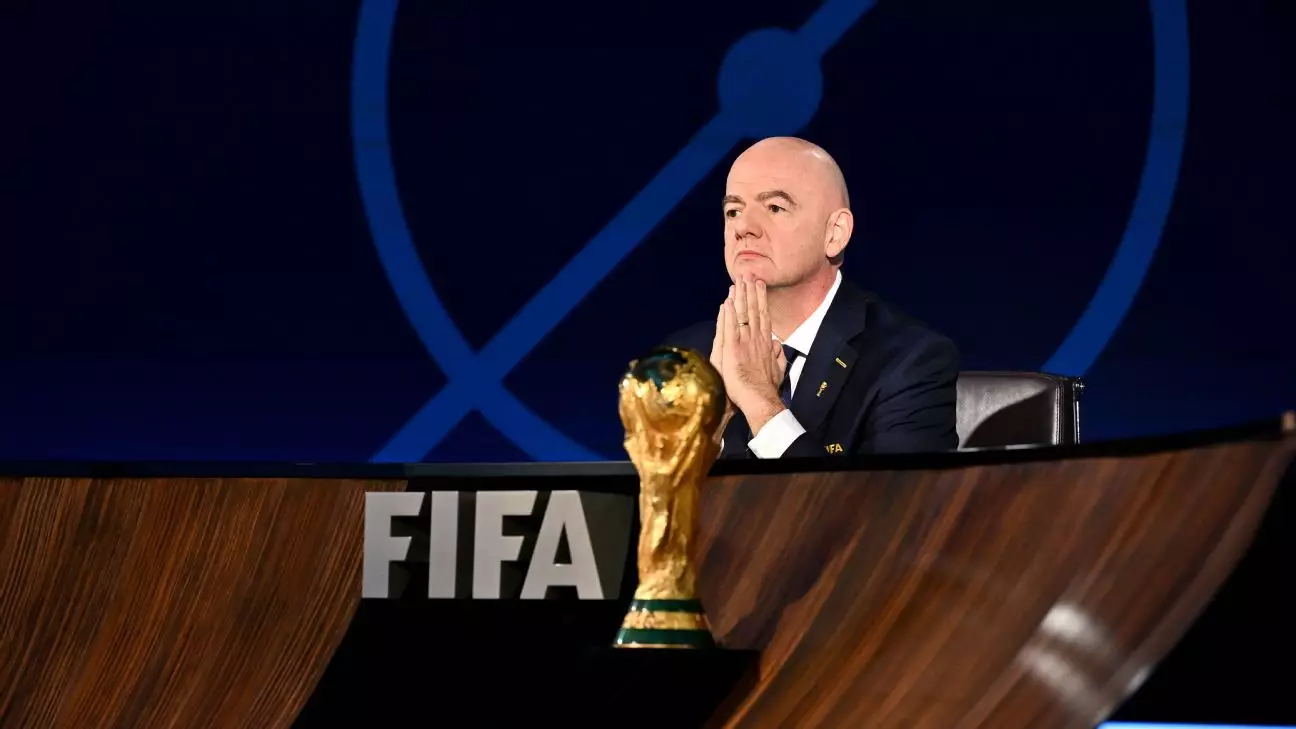The recent decisions by FIFA regarding the hosting of the 2030 and 2034 World Cups mark significant milestones in the ever-evolving landscape of international football. With Saudi Arabia set to host the latter tournament and Morocco, Portugal, and Spain taking the lead for the former, these choices reflect a broader strategy aimed at expanding football’s global footprint. The confirmation came during an extraordinary general congress, where CEO Gianni Infantino revealed the outcomes amidst applause from more than 200 member federations. The support for these decisions was effectively unanimous, raising questions about the implications for the sport moving forward.
Infantino’s assertion that bringing World Cup football to more countries can enhance rather than dilute the event’s quality is particularly noteworthy. It underlines a vision where football transcends traditional powerhouses, giving rise to new fanbases and nurturing the sport in underrepresented regions. With the next World Cup given to three nations in Southern Europe and additional matches staged in South America, FIFA is consciously aiming to celebrate the sport’s history while simultaneously investing in its future. However, critics argue that this approach might risk saturating the brand of the World Cup itself, potentially impacting its value and prestige.
Saudi Arabia: A Solitary Bid
Saudi Arabia, as the sole bidder for the 2034 World Cup, underscores the kingdom’s ambitions to position itself as a major player on the global sports stage. This initiative aligns with their broader Vision 2030 goal, aimed at diversifying the economy and promoting tourism through international events. Nevertheless, there is skepticism regarding the motivations behind such an expansive project. The Norwegian Football Federation’s decision to voice discontent with FIFA’s bidding process highlights a growing concern about transparency and fairness in the selection methodologies employed by FIFA.
While the selections may appear to be a victory for growth, significant challenges loom on the horizon. FIFA’s proposals for a winter tournament in Saudi Arabia have raised alarms among Europe’s major leagues, such as the Premier League and LaLiga. The potential disruption to the seasonal fixtures could provoke backlash from clubs and players alike. This situation calls for a constructive dialogue between FIFA, national leagues, and regional governing bodies to navigate these complexities while ensuring the respect and integrity of domestic competitions.
As FIFA moves forward with its plans for the 2030 and 2034 World Cups, it stands at a critical juncture. The decisions to host in lesser-traditional footballing nations can offer unprecedented opportunities and can help foster a deeper global connection to the sport. However, these ambitions must be approached with careful consideration of logistics, equitable practices, and the overarching motivations behind them. Striking a balance between expansion, tradition, and the football community’s sentiments is essential for FIFA to maintain its legitimacy and the World Cup’s esteemed legacy.

Leave a Reply